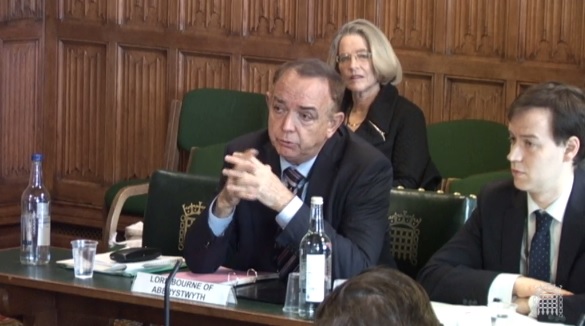A replacement scheme for the able-to-pay domestic energy efficiency sector is to be delayed until 2017 with only a set of principles to be outlined by the end of the current calendar year, according to the parliamentary under secretary of state for climate change.
Lord Bourne of Aberystwyth was giving evidence to the energy and climate change (ECC) select committee yesterday when he was asked to provide detail on when the Department of Energy and Climate Change (DECC) would unveil new policy to follow the Green Deal.
“I would have thought that within this calendar year we’ll come out with a set of principles but in terms of legislation and what’s needed, it will fall behind ECO,” he revealed.
“Work is beginning to happen on this area but it is not the number one priority in the home energy area at the moment; that is getting ECO right now and tackling the fuel poverty issue. That doesn’t mean it’s not happening but it is happening more slowly, I don’t want to mislead you be suggesting we’ve done masses of work on this at the moment.”
The conservative MP Antoinette Sandbach claimed this sounded “like a football being kicked very far in to the long grass,” to which Lord Bourne replied: “That’s exactly what it is.”
Following the decision to effectively scrap the Green Deal in July 2015, energy secretary Amber Rudd claimed she would seek funding for energy efficiency in last year’s Autumn Statement, before telling the ECC select committee that a replacement policy would be unveiled early in 2016 at the latest.
This latest update from Lord Bourne means the supply chain that grew around the Green Deal scheme will have to wait until 2017 at the earliest for new legislation.
Angus MacNeil, chair of the ECC committee, criticised the DECC minister and his department for the lack of pace in developing a new policy.
“Here we have a government department telling us that within the calendar year it would like to come up with a set of proposals but what about the people whose jobs are dependent on this and waiting for action from government. We need a bit of urgency here,” he said.
In response, Lord Bourne said: “There is urgency here but we need to get it right. I think industry will quite rightly want to make sure that we come up with something that is coherent. I will certainly make sure that we have something coherent that we can publish this year.”
However, the continued slowing of policy development to replace the Green Deal could affect future regulation governing the private rented sector. Under planned legislation due to come into effect in April 2018, landlords will be required to upgrade their properties to a minimum EPC standard of E. Funding for the work was to be accessed through the Green Deal Finance Company, which is no longer financed by central government.
Jenny Holland, head of the parliamentary team at the Association for the Conservation of Energy, told Clean Energy News: “The minimum standards come in in April 2018 so there is still some time to get a bit of policy clarity but equally the more it lags behind, the easier it will be for landlords to say ‘we haven’t had sufficient notice’ and perhaps make a successful case for having the introduction of the minimum standard put back.”
“It’s all very worrying not just in terms of able to pay households but in terms of upgrading the homes of some of our most vulnerable citizens who live in private rented accommodation. We’re disappointed by this evidence and we’d urge [DECC] to get their act together a lot more quickly than they seem to be intending to at the moment.”
Lord Bourne explained that the delay was caused by DECC’s focus on developing the new ECO scheme to focus on fuel poverty. A replacement to the current energy supplier obligation is due in April 2017 although Lord Bourne added that there would be a transitional year to accommodate its introduction.






